|
So, before I go off on a burst of happiness, I should do this: In the interest of consistency and intellectual rigor, I must adhere to my basic sense that happiness, as an emotional state of being, is highly overrated. It's too reliant on current circumstance to be trustworthy, and the factors that spur it—good news, fortuitous coincidences, pure serendipity, and the like—are too transient to be relied upon. My aim in saying this isn't to knock happiness—if you have it, brother or sister, be thankful for it and keep it as long as you're able—so much as it is to cast a vote for its more durable cousin, fulfillment. If you're fulfilled in where you are, whom you're with, what you're doing, where you're headed, you have something to hold tight to when the transience of happiness is with you and when it's against you. That's my theory, anyway. That said, I'm pretty (burbly-happy curse word) happy these days. Let me count the reasons ... 1. One night in Big SkyI'm just back from Big Sky, about three hours from where I live. The board of the Big Sky Community Library chose And It Will Be a Beautiful Life as the community read (One Book Big Sky) for the fall. Tuesday night was sort of the capstone of the event. I drove out, had a wonderful chat with folks who read the book, spent the night, and came home. It was a soul restorer in all the best ways. When writers and writers gather, it can be a lovely thing (see below), but it can also be a release of the pent-up frustration that only writers know and thus are in position to help each other through. When readers and writers gather, it's straight-up love. How lucky was I to spend an evening with a bunch of people who read my book, read it closely, had such interesting things to say about it, and wanted to come talk with me? The luckiest. No doubt about it. I rode those good feelings all the way home. The drive from Big Sky to Bozeman is one of the most visually arresting things you can see anywhere in these United States, so there's that, and believe me, I drank it in (figuratively). I made stops at libraries in Bozeman, Livingston, Big Timber, and Columbus, planting seeds for more days and nights like the one I'd just enjoyed. Here's hoping. 2. The blessings of good friends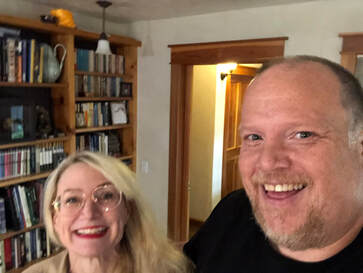 With AMERICAN ZION author Betsy Gaines Quammen. With AMERICAN ZION author Betsy Gaines Quammen. I think I'm only just now getting my considerable arms around how emotionally bereft the pandemic has left me (and so many other people, judging from what I'm reading and what I'm hearing). Honestly, I thought being chased inside and away from gatherings was a small blessing amid a horrible event, but it wasn't that at all. Now that I can see and meet the people I want to see and meet—while still being careful, of course—I'm realizing how much I craved it. Just in these past few weeks, I've gotten to hang in Butte, Missoula (thank you, Gwen Florio and Malcolm Brooks), Livingston (thank you, Amy Zanoni and Maggie Anderson), Bozeman (thank you, Betsy Gaines Quammen and Kryssa Marie Bowman), and Big Sky. I've had the fellowship of brilliant writers and thinkers, genuinely good people, and people who lovingly tend to the cultural life writ large. Man. I've needed that so much. So much. Happy? Yeah, I'm happy. But grateful most of all. 3. The work is going well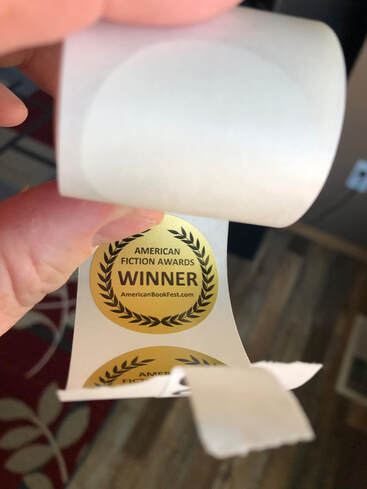 Winning an American Fiction Award was a lovely bit of news to receive. Winning an American Fiction Award was a lovely bit of news to receive. OK, look, here's where I keep it honest: If my publisher had said, sorry, kid, but your manuscript stinks and I'd received a lot of hate mail and my dog was snubbing me, would I be Mr. Happy? I would not. This, of course, underscores my point about fulfillment vs. happiness. I work to a standard I set so I can know I've done my best regardless of what a gatekeeper says (or, at least, so I'll have the gumption to try again if I find the door closed). I try to approach the world with an open heart because I believe that's how we get past at least some of our divisions. I engage with my dog so he knows I'm his, and he's mine. That's fulfillment. The happiness of it comes and goes. But I can't deny that I'm really, really enjoying every side of the work right now: The creation of it, when it's just me and an idea and the challenge of getting from here to there. The production of it, where I interact with the publisher I wanted to be with and who wants my work on his list. The carrying it to readers and interacting with them, which can be such an incredible validation of the work put in. The awards, both realized and potential (talk about transience). I'm as energized for all of it, the whole arc, as I've ever been. In Missoula, while waiting to eat lunch, I happened upon a meeting with a well-regarded poet and fiction writer and a genuinely good human. I don't know him well, but I like him, and even so, in the worst of my do-I-want-this-anymore crisis a few years ago, I deleted him (and a whole lot of other writers) from my social contacts, in a clumsy, flailing attempt at ridding myself of reminders of an endeavor I wasn't sure I wanted anymore. So there I was in Missoula, nonexistent hat in hand, apologizing for something I'm sure he didn't even notice, telling him I was in a dark place. He was kind and compassionate, as I expected he would be. I still appreciate the grace. I hope, the next time I'm on the other side of that conversation, I extend it to someone who needs it. I'd like to think I've learned something. Certainly, I appreciate that the want-to came back to me, and I'm going to nurture it as much as I can. But what happens when rejection arrives (as it surely will), or awards don't (ditto)? I don't know. I'll try to remember now and then and remind myself that I can be in both places. Just not at the same time. 3b. That was a lot. Here's an anecdote.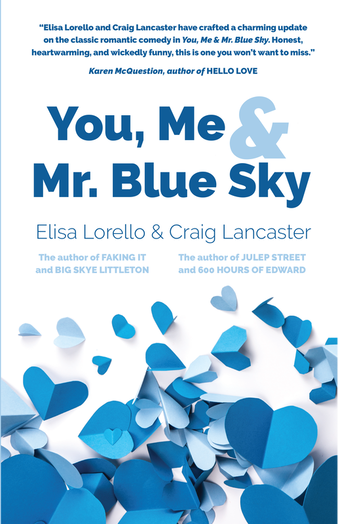 So I'm driving home from Big Sky and I'm talking on the phone—hands-free—with Elisa and I'm saying much of what I said above, only differently, and I'm telling her how energized I am, and I'm hearing how energized she is, and we come around to You, Me & Mr. Blue Sky. It's the novel—a romantic comedy that goes deeper, as Elisa's work does—she and I wrote together in 2018 and 2019. We released it ourselves ... and pretty much let it flop around out there. Our crises of confidence coincided. Those were hard, broken days. We had no energy for much of anything, and certainly not for getting out and trying to introduce a book to the world. We were too adrift in our personal lives to have the fire for the professional. Frankly, there were times I wasn't sure we'd make it. But we did, and we have, and we're going to. Elisa is back, too, and she said, you know what, we should put a new jacket on that old novel we never really got behind. Freshen it up. It's a story of brightness and hope, and it has this dreary cover that doesn't fit it. Let's give it some love. OK, she didn't say that exactly, but that was the gist. And here it is, dressed to meet the readers we hoped it would meet. 4. Health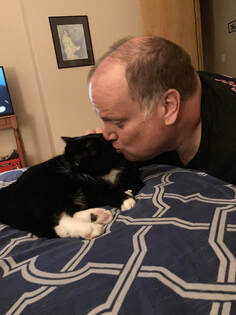 Elisa didn't join me in Big Sky because our cat, Spatz, has been ailing. The most recent health issue was one that had a small sliver of hope for resolution and a rather wide, grim likelihood in terms of what we'd have to do. I had an appointment I had to keep, and Elisa decided to stay behind and tend to our girl. And our girl, not for the first time, has proved resilient. Her issue has resolved itself—or, at the very least, has recessed into a place where she's her old self again for however long that lasts. She was a surprise when she came into our lives, and we've resolved to enjoy her for as long as we have her. That horizon, delightfully, has widened. We're thrilled. As Elisa is given to saying, she's our Rushmore, Max.
0 Comments
8/14/2022 0 Comments Small. Appreciative.
Life has some funny cycles. As I write this, I'm just a handful of hours home from a couple of days in Great Falls, that visit coming on the heels of another Great Falls trip the previous week. Before that, I think the last time I was in Great Falls other than just passing through was ... 2010? 2011? A long time ago. I hope this means I'll be going back sooner rather than later. I like that town.
I was there to take part in a panel discussion of Montana authors, sponsored by the Great Falls Public Library as part of the Big River Ruckus festival. It was a blistering-hot morning, and my planet-sized melon sizzled. As is often the case for literary events, we didn't have a big crowd (I believe the applicable adjectives are "small" and "appreciative"), but we had good times in abundance. I joined poet Dave Caserio (a Billings denizen, like me) and writer Kristen Inbody, and we had a rollicking good time talking about writing in the West, ideas, how place figures into our writing, and much more.
Whenever I do an event, I'm put in mind of a line from a Pernice Brothers song: It doesn't matter if the crowd is thin / we sing to six the way we sing to ten ...
It's a funny line, of course, but the sentiment is dead-on. I've seen everything there is to see at readings, book signings, and the like: small gatherings, no gatherings, full houses, whatever. Whatever you get, you deliver as best you can to whoever was kind enough to show up. It's a charming business in that way. Every hand that's there to shake—or the only hand that's there to shake—is another chance to make a connection. And connections are everything. One person showed up? Great! Take that person out for dinner or a drink. The whole town showed up? Fantastic! Now you've got a party.
Love is love, and we love the stage ...
Before heading home Sunday, I drove out northwest of Great Falls to see the dairy farm my father grew up on. It was only the third time I've been there, and the second was just a drive-by, but I remembered the route just fine. I drove down the long driveway to where the house is, but nobody came out, and I wasn't about to go knocking on doors, so I took a quick look, then slipped out of there quietly.
Here's a nice shot from atop the bench, about a mile and a half from the farmhouse. Sorry for the telephone pole bisecting Square Butte.
When I talk about writing and where it comes from, as I did during our discussion Saturday, I'm apt to talk about how we are born with stories. We're not blank slates. Going to a place that was formative for my father (in mostly devastating ways, unfortunately) is a good demonstration of what I mean. It allows me to put eyes on his life, to process it, and to make sense of my own. Because of the way his life was shaped by his early experiences, he had a story to transfer to me, one that I would start to carry when I came into the world, along with the one I would live out in my own days. The same is true, of course, with my mother, and her parents, and his parents, and their parents before them, and on and on. The stories are inside us, already coded. We draw them out, interpret them, weave them with imagination and memory (in the case of fiction), give them purpose. It's a beautiful thing. Even when the underlying material is made up of mostly terrible things.
"Before you climb the mountain, first the foothills must appear."
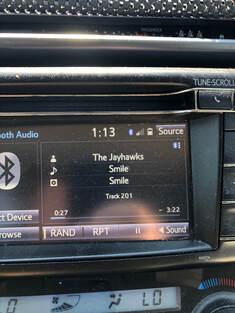
It was a long, hot, empty drive home for Fretless and me. He mostly slept. I mostly sang along with the random shuffle of iTunes, something I can get away with when I'm alone. (I certainly wouldn't subject any human to my singing voice.)
On the final stretch home, I received a particular delight when iTunes served up one of my favorite songs but also one that doesn't often swim to the top of the heap. I suppose most songs remind us of something, someone or some point in time. Certainly, this one does that for me. There's a tinge of melancholy, though, because it's a reminder of a friendship I miss. It's been many years since it went by the wayside, and I've come to embrace something I was told a long time ago when I was seeing a counselor while in the midst of divorce: Some friendships are like cab rides. They have a beginning and an end. Indeed, they do.
Anyway, it was nice to hear the song at that moment, with my head where it was (reeling in other memories), to recall good times with someone who was a good friend, and to put out a silent wish: I hope the good life has found you where you are.
It certainly has found me. Coming home—to Billings, to Elisa, to Spatz the cat—is the best arrival I've ever known. It makes the leaving worthwhile. 8/5/2022 0 Comments Great Falls, AdequatelyCome October 1st, it will be six years of marriage and about seven and a half years of togetherness for Elisa and me, and let me tell you: That's long enough that most of the stories have been told, mine to her and hers to me. We scooted away for an overnight trip to Great Falls this week. I had an event at Cassiopeia Books and an overdue acquaintance to make with owner Millie Whalen, and it was nice that Elisa and I could get away, just the two of us, for a little while. On the trip home, one of those untold stories spilled out ... Great Falls is where a lot of my family lore resides—my father, born in Conrad, grew up around there, and he and my mother married there long before I showed up—but it's not somewhere I often go. In nearly sixteen years of living in Montana, I've been only a handful of times, far less often than I've been to Missoula or Bozeman or Livingston or Helena or, heck, Miles City or Glendive. But in 1992, I almost moved there. That's the story that had gone untold. Now, when I say "almost," some qualifiers are in order. I wanted to move to Great Falls (or thought I did). The sports editor at the Great Falls Tribune at the time, a wonderful guy named George Geise, wanted me to move to Great Falls. The man who could make it happen, a senior-level editor at the paper I'd just as soon not name (but whose name I've never forgotten), made it clear I wouldn't be welcome there. The reason: I didn't have a college degree, and he didn't think I was qualified for the job without one. (I still don't have a sheepskin, but that's another story.) Now, let's be clear: This guy was flat-out wrong. I could handle the job I'd applied for (sports copy editor/page designer). I was handling it at a paper of similar size in Texarkana, Texas, and I would go on to handle it at progressively larger, more prestigious papers. I would, in time, become well-decorated and well-traveled. I would lead workshops in editing. I would direct a large sports department at a large West Coast newspaper. I would ... but I hadn't yet. Not in 1992. Then, I was a 22-year-old kid with some talent and, in fairness to the Executive Who Shall Not Be Named, some cockiness that was a bit out of proportion to the skills I'd honed to that point. And that imbalance, I think, would have been a perfectly valid reason for him to say, "Sorry, kid, not going to happen here." But that's not what he said. He fixated on the degree I didn't have. I didn't get the job. George Geise was disappointed. So was I. There was personal history to unearth in Great Falls, and I was already well in love with Montana, an affair that goes on and on. I thought I was missing out on something important. So, stuck for a while longer at a job in Texarkana I no longer wanted*, I made a resolution, one that has stuck for 30 years: No way was a guy like that going to be right about me. I made sure of it. *—In Texarkana, the single most appalling moment of my journalism career, now more than three decades old, happened. When Magic Johnson rejoined the NBA after his HIV-positive diagnosis, I played the story big on the front page of the sports section (as did just about every paper in America). The next day, a copy of the page was in my mailbox, the story circled in red pen, along with a note from an executive at the paper: "Magic Johnson is an immoral HIV carrier, and none of our readers care about him." I should have quit on the spot. It's to my eternal chagrin that I did not. I did, however, start looking for a new job immediately. 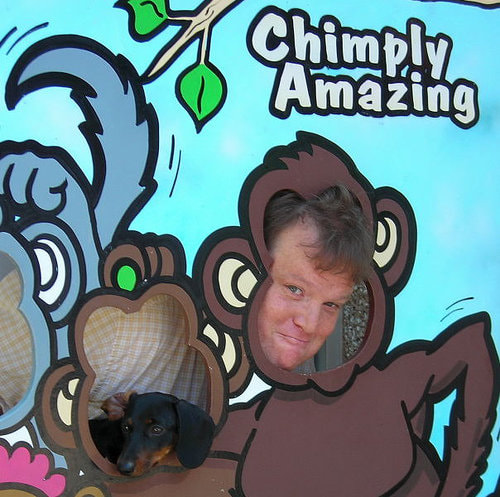 Me with Zula (RIP), clowning around in Great Falls in 2007. Me with Zula (RIP), clowning around in Great Falls in 2007. Now ... Did I miss out on something by not finding my way to Great Falls in 1992? Well, yes. Something. But not everything, and not the most important things. I didn't make it to Montana and stick here until 2006, when I was 36. Within a couple of years, I was writing books, something I'd have not even attempted 14 years earlier. By the time I got here, I'd already dug into the personal history that was faintly compelling me in my early 20s. I'd found my grandfather and closed an open question. I'd begun to talk to my dad about his life and his memories, so I could find ways to get closer to him. In subsequent years, I'd help, in whatever meager way I could, to put ghosts to rest. The headstone pictured below on my grandmother's grave (in Great Falls) went in just 15-plus years ago, well after her death, as my father began to forgive her for the ways she'd wronged him, a thawing of feelings that came about because he and I started digging in the hard soil of his past. On some level, I'm just guessing, but I doubt any of that would have happened the way it did if I'd shown up in Great Falls at the callow age of 22 and burned through that job the way I burned through others during that time in my life. Montana might have been over and done with before I could have gotten to know her. I might have missed the best years I've enjoyed here. The very best years of my life, as it turns out.
So far, anyway. This is a story of a bookstore. It's a story of a bookstore that was baked from scratch, with not a lot of ingredients, by a lot of people who'd never baked a bookstore before, trying a method that, if not unprecedented, certainly is uncommon. The bookstore is This House of Books, in the town where I live, Billings, Montana. Its name is a nod to perhaps the most famous work of perhaps the most famous Montana author, Ivan Doig. What we call it is one of my favorite things about it, but not my very favorite. No, my very favorite thing about it lies within the many people who love it and sustain it, and then that smaller set of stalwarts who ensure that it keeps going, who dig deep into their own pockets to give it an occasional transfusion, who pour their sweat equity into its needs, which are both predictable and unpredictable. Who are there for the biggest moments in its life. Like when it moves, as it did this holiday weekend, going from one lovely downtown space to another. Elisa and I offered some modest help with the move, just a few hours and just a few dolly loads. We're part of the larger support system, the people who shop there, who invested early in its co-op model, who take advantage of its generous policy of holding events for local authors. Today, for example, I dropped in for an hour and helped stock shelves (including my own, below). A small contribution. The stalwarts, they'll be there into the deeper hours, as they have been all weekend. Bless them. We would not have this community pillar if not for them. And it is a pillar, a status the bookstore has achieved against what Alex Chilton, in another context, called "unbelievable odds." It's the brainchild of author Carrie La Seur, whose admirable tenacity ensured that we didn't just talk about having a bookstore in Billings but also got it done. Its funding model was suggested by former Billings mayor Chuck Tooley. It wobbled into a standing position on underfunded legs, but it found a way to walk, and it's walking still. That's thanks to talented and selfless folks who volunteer their time and energy. And, of course, it's thanks to the people who shop there.
The continued existence of This House of Books feels personal to me, and not because of the money Elisa and I have sunk into it (not all that much, relatively speaking) or the labor we've done (ditto). No, it feels personal because the bookstore exemplifies the promise and the attraction of where we live. It feels like a stand for the homegrown, the funky, the only-in-Billings, the same as the non-chain restaurants and the little shops and the independent coffee bars here. It feels like something the billionaires and the hedge funds can't get their claws into, if we don't let them, if we consider where we buy and why and act on those values. Downtown Billings was a moribund place for many years, and it's not anymore. I'd like to think our little bookstore has something to do with that. If you've got one—an independent bookstore—cherish it. If you've always dreamed of owning one, feel free to claim a piece of mine. Ours. 5/25/2022 0 Comments Some Who Shaped Me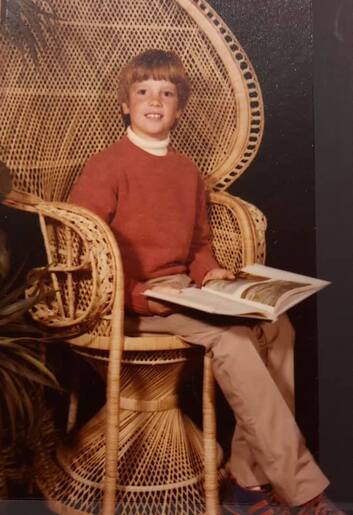 That's not a chair for reading, son. That's not a chair for reading, son. Today's little trip through the memory banks requires us to visit late summer 1978, a suburb of Fort Worth, Texas, called North Richland Hills, a neighborhood (and its elementary school) called Smithfield. Smithfield, in fact, was what most folks who lived there called the place back then. North Richland Hills, now a sprawling burg of about 70,000 people, was a relatively new concern in those days, having been voted into its own municipality 25 years earlier when Richland Hills, the now much smaller adjacent community, declined to annex the area. By 1960, North Richland Hills had gobbled Smithfield, a freestanding community to its north. The census in 1970 put North Richland Hills' population at just a shade more than 16,000 people. We were 30,000 strong by 1980, so you can sort of suss out the math for '78. We were getting bigger britches, for sure, but we were a cozy group. If you were to cleave off the people who thought of Smithfield as Smithfield, because that's what it had always been to them, you'd be left with an even smaller subset. Anyway, it was a different time and, in its way, a different place from what it is now. I was a different boy. There at the left, that's a pretty good approximation of what I'd have looked like (minus the wicker chair) as I pedaled off on a summer day to our neighborhood school, Smithfield Elementary, to see if the classroom assignments for the coming school year had been posted. When I saw that I had been assigned to Charlotte Cooke's classroom, I know I was overjoyed, for that's the teacher I'd been hoping to get as I moved on from second grade to third. So here's the thing: I didn't spend long in Mrs. Cooke's class. Maybe a week. Maybe less. I don't remember, exactly. What I do remember is that a new third-grade teacher started at Smithfield that year, a newly minted graduate who had been a late hire and was getting her first classroom at our school. As I recall, a class was built for her first by asking for volunteers to shift over from their assigned teacher to this new one. After that, the administration would do it by conscription. Again, here's where the finer details are lost to me in the intervening 44—holy shit, 44!—years, but I do remember that I volunteered. I do remember being concerned that if kids didn't act like they wanted to be part of this new teacher's class, she would get discouraged and think she was unwanted. I am certain—utterly certain—that given my affection for Mrs. Cooke, volunteering wasn't what I wanted. I felt like I needed to do it. Where such a notion came from, I have no idea. 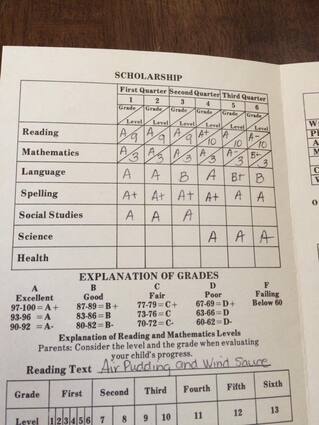 I've made a lot of stupid decisions in my life. Made a lot of fortuitous ones, too, and volunteering for Donna Spurgeon's third-grade class in 1978-79 is a standout in the latter group. I loved her almost from the get-go—I do recall some initial cold feet about leaving Mrs. Cooke's class that my mother told me I'd have to overcome, having made a commitment—and I've loved her straight through. She later had my sister (twice, I think, after she moved up to a fifth-grade classroom), she changed schools and I kept up with her, I visited her classes a few times through the years, I was able to wish her a "well done!" when her retirement came through, and we keep the conversation going on Facebook even today. Back then, in 1978-79, I ended up feeling like I got the best outcome possible. Mrs. Cooke still figured into things, teaching me the perilous math of third grade (fractions!) and breaking me of the annoying habit of making my fours look like nines. But Donna was an all-timer, the kind of teacher I made it a point to keep up with as the seasons changed, for both of us. She started as a teacher (and even raked me pretty hard on my language skills, as evidenced by the report card above), then ended up as a friend. Doesn't get any better than that. So what of Mrs. Cooke. Well ... Sadly, I didn't keep up with her. I liked her, appreciated her, enjoyed her instruction, but time went on and so did I. And so did she. But let's go back to this idea of Smithfield as a place in time and as a heart's memory, just for a second ... There's a dedicated group of people who are from where I'm from, who've stayed, who haven't let the idea of Smithfield get too far away even as its time as a stand-alone town recedes. Every year, first weekend in May, there's a reunion. Living several hundred miles away, as I do and as I have for most of the past 35 years, I've never been to it. That's my failing. This year, I sent a stack of books to be included in a raffle, to hopefully play some small part in keeping these annual get-togethers going. A few days after the event, I got a text message from one of the organizers. She said someone had dropped by, seen the books with my name on them, and remembered me. Charlotte, she wrote. She was Charlotte Cooke, and she's Charlotte Williams now. Well, I'll be damned. A torrent of memory came on. You can see it, in every paragraph above. The organizer, LaDonna Powell, and I launched a conspiracy. We'd send her a book. I'd enclose a card. We'd spring a video chat on her. We'd close this circle that's been hanging open since Jimmy Carter was president. There she is, and there I am, all smiles for our long trip back to each other. I'd like to say I would have known her on sight, on the street, but I probably wouldn't have, and I'm certain she wouldn't have known me. But as we talked—just briefly—I could see the flickers of kindness and care that made her such a wonderful teacher for all those years, one whose classroom I badly wanted to be in when I was 8 years old and rode my bicycle down to the school to see if the luck of the draw had been with me. It had been, and yet I asked to be reassigned, which turned out to be only one of the most consequential decisions of my growing-up years.
Sometimes, it all works out. What I said to Mrs. Williams, in our chat and in the card I included with her book, is between the two of us. In the broad strokes of it, I can say only that I'm grateful. For the kindness of the teachers I've known, whether chosen by me or for me. For the intercession of LaDonna. For the chance to say thank you, and to mean it. Thank you. 5/20/2022 0 Comments History as I Wish I'd Learned It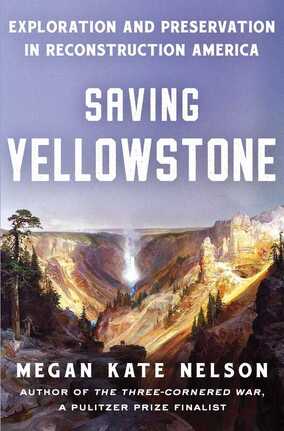 Several months ago, one of my journalism and writing heroes, Tom Zoellner, invited me to review Saving Yellowstone for the Los Angeles Review of Books. I was a bit cowed by the prospect, to be perfectly honest. I don't have any standing, in senses literary or academic, to critique the work of Dr. Megan Kate Nelson, the book's author. I hadn't yet read her previous book, The Three-Cornered War, which had been a Pulitzer finalist. I was, upon first consideration, well out of my depth and not particularly inclined to take on the assignment. And then I reconsidered. If Dr. Nelson's literary ambition is to peel back history and explain it to a general audience—as well seems to be the case—then I'm about as general as they come. I'm curious and informed, I live in the region where the events of Dr. Nelson's book unfolded, and I try to live my ideal that an engaged life and mind require making some inroads into all you don't know (a considerable pile for me) and challenging those things you think you do know (also a considerable pile). In those ways, I was redeemed by reading and reviewing Saving Yellowstone—and by backtracking to read The Three-Cornered War. The review speaks for itself, I think. Beyond the completion of my assignment, the book has stayed with me. I've repeatedly recommended it, in sometimes obnoxious ways (see the tweet below). I've put it in the hands of friends. I've pondered the way Dr. Nelson's presentation of history—as something connected, something that breathes and reverberates—stands at odds with the lessons of the garden-variety public education I received in my Texas suburb, in which events were stand-alones and dates were to be memorized and regurgitated. Dr. Nelson's book details the Hayden expedition into Yellowstone, yes, and the establishment of our first national park, but also so much more, including the influences of capitalism, the literal and figurative erasure of Indigenous peoples, how the grappling with Reconstruction was not just a southern story but also a western one. One of the jarring lessons of the read, for me, was seeing the way the Grant administration's attempt to bring freed slaves into the body politic lay parallel with a policy of dispossession and extermination of Indigenous peoples in the West. The aims of the former policy largely failed; the aims of the latter were vastly realized. The result of both has been lasting inequality. The book is a triumph of dot connecting, of context, of presenting the bigger picture that lies outside conventional framing. It cannot be read without the realization that the fracture points of yesterday linger today. In the reading, I was reminded of something I often impart to editing clients when I sense that their narrative has gone passive (something that is NOT an issue for the history Dr. Nelson illuminates or the way she goes about telling it). The "and then, and then, and then" structure of storytelling will not compel an audience's attention or investment. I mentioned the polished-up version of history I absorbed and spat out for tests in my youth. That's how it was often (not always, but often) presented to me: Here's this. Here's this. Here's another thing. Here's still another. Hey, why is your head down and what's with all the drooling? Dr. Nelson's book, a work of scholarship, clicks along the way good storytelling does. It has sinew and electricity and a heaping measure of "but therefore ..." It moves. It speaks. It is kinetic. You must read this book. Yesterday, I drove from Billings to Livingston to see a lecture by Dr. Nelson and by Dr. Shane Doyle, who detailed the fascinating history of Indigenous peoples in Yellowstone.
Their presentations were sponsored by Elk River Arts & Lectures and the Park County Environmental Council and served as a fundraiser for the All-Nations Teepee Village, an event "to honor and recognize the many Tribal Nations with connections to Yellowstone and highlight the indigeneity of the landscape." To learn more about that effort (and to donate), go here, please. I've been in Montana for a while now--much longer in my heart than in my physical presence—and every day that has included a trip to Livingston can be filed away under the heading of "Best Days." Beers and yuks with the great Scott McMillion (who wrote the quintessential Livingston appreciation). A quick bite and more imbibing with Marc Beaudin. Chatting with Elise Atchison and Max Hjortsberg and Tandy Miles Riddle. Seeing pals on almost every corner. May your life be blessed with interesting travel and good friends. 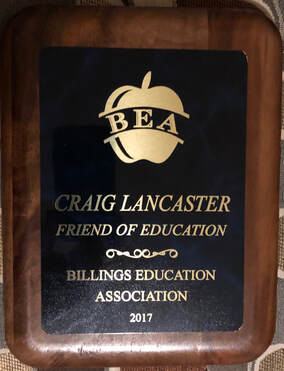 My favorite bauble. My favorite bauble. I've been fortunate enough to have had some terrific honors bestowed upon me. Fifth-grade spelling bee champion. Sixth-grade student council president. I mean, do I have to go on? We're talking biggies here. It was just about this time of year in 2017 that, perhaps, the one that means the most to me came around. The Billings Education Association—the union for public school teachers in the place I call home—honored me as its Friend of Education. It was deeply meaningful to me for several reasons. One, I'm a child of public education (thank you, Birdville Independent School District and Smithfield Elementary, Smithfield Junior High (now middle school) and Richland High School). Two, public school teachers have had a profound effect on me at every stage of life. They've been mentors and influencers and friends. I was born to one. I married one. Three, I truly believe that public education is a compact we must hold with each other, no matter how fraught things get (I'm not terribly optimistic about how things are going in that department, but I still believe in the compact). Public education is the ultimate investment in our future, together. I could go on and on. I have, in fact. Whatever the teachers in my town felt in calling me their friend five years ago, I send it back in triplicate to them. English teachers at West High School here in Billings were instrumental in getting 600 Hours of Edward on the approved curriculum list at the high school level, and for years now, some of them have been teaching it. It blows my mind, still. And the bargain I've made, straight along, is that if you want me to visit the classroom, to talk about writing and creativity and life beyond high school, tell me when and where and I'll be there. The pandemic, as you might imagine, took a bite out of that bargain. And yet, there we were last week, a handful of English classes at West—juniors and seniors—and a creative writing club, and we were working through one of my favorite writing exercises, The Word (I am not its inventor, by the way, just an enthusiastic adopter). Each class, I'd have the kids tell me their name and give me a word. We then ran a random-number generator to choose a single word that the entire class had to use as inspiration for a short story. Writing time: 20 minutes. It's a hell of a thing, I'm sure, to show up one day at school and hear that some dude you've never met before wants you to spend most of a period writing. But these kids did it, and their enthusiasm, generosity, and talent leave me hopeful for their futures and my own. For every period, I wrote alongside them, ending up with nearly 3,000 words of material, by far a busier day than I usually have. I'll spare you the whole passel of short stories (unless you really want to read them), but here's a taste: Lightning When we got the dog—a 48-pound, 40-inch-long, 14-year-old basset hound—I named him Lightning because, among other things, I was into irony. Lightning’s name was Dexter when he was stuffed in a kennel at the humane society, on account of his previous owner, an 84-year-old woman named Mildred, up and died one day and Dexter was found sleeping in the small of the back of her tumbled-over carcass, and Mildred’s kinfolk didn’t want him. And you might say that if a dog has borne a name, any name, for 14 years, he ought to be allowed to keep it for the rest of whatever time he has left. And, OK, that’s a fair point, but Dexter is a crappy name and no more fitting the hound he was than Lightning was. So I changed it. My prerogative. We didn’t get off to a good start, Lightning and me. First night, I put him up on the bed, and he walked around behind my shoulder, I thought he was snuggling in, and he lifted a leg on me. New house, new bed, new people—I guess I can’t blame him, but come on, man. He pooped on the rug the next day—the good rug, that was the problem, not that frayed thing in the den—and I thought, well, Lightning, you ain’t long for us if you don’t straighten up and fly right soon. I needn’t have worried, as it turned out. I’ve come to believe, in the looking back, that the speed of him—opposite the name we’d hung on him—was the secret to his longevity. That dog just wasn’t in a hurry for anything, which kept his heart rate low and his blood moving agreeably. “Lightning, dinner,” we’d say, and we’d wait for the lumbering, this long dog who could have two feet on different sides of a corner, and he’d come into view and he’d eat at a luxurious pace, like a cow working its cud. “Lightning, let’s get in the car!” Same thing. That dog moved in a way that would make a sloth say, “Damn, that’s one slow-moving animal.” Ironic, then, that the event for which he gained his fame around our house, the reason Judy would grip him by those jowls, unbidden, and say, “You’re the best dog ever, yes you are,” was a moment of alacrity. Megan, our youngest, just a baby, crawling for the curb and the traffic beyond, we’re bound up in watching Mitchell show us his batting stance there in the front yard, and she’s nearly to the asphalt, and here’s Lightning, moving at his bah-doop-dee-doo pace and he snags her diaper in his teeth and pulls her back. That’s a good boy. We said goodbye to him last night, the fadeout that we’d seen coming and were still flabbergasted by when it arrived. Lightning, staring up at us, our expectant faces in his, our tears surfacing, and here’s that old floppy-tongued kiss, the one we’d had a thousand times and would never have again, and he’s gone, gone, gone, not so much a flashing discharge of electricity but a shattered star lighting up our days and nights. 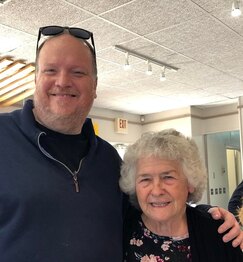 With Hazel Lowrance, my kindergarten teacher (1975-76), in March 2022. With Hazel Lowrance, my kindergarten teacher (1975-76), in March 2022. After writing and sharing—the kids were great about that, too—we talked about what I like so much about this exercise, that in the letters and meaning of a single word, there's a fuse that can be lit and burned down into a burst of creativity. It's one of the most magical things I know of, how you can tap into memory, word association, imagination and pull a story right out of yourself. It's entirely egalitarian. You don't need permission. You don't have to wait for someone to judge you worthy. You just need time and inclination. You need a pencil and a piece of paper and the willingness to get busy. And the thing is, long before I ever thought about these things, long before I ever knew what a writing prompt was, long before I ever imagined trying to build a life around words, I had teachers who pushed me, who had lamplight and were willing to show the way, who truly and honestly believed that each child in their care had purpose and something to offer. On the surface, I don't have much in common with those kids I met last week—I'm older than their parents, in many cases, and from a generation that must seem decrepit and dated to them. And yet, the successors of those teachers I remember with such fondness and admiration are in the classroom now. Still pushing. Still guiding. Still believing. How lucky we are. What a shame it would be if we lost it. 4/7/2022 0 Comments How Do We Feel About Poetry?
Love it! What's the next question?
No, seriously, the great Chris La Tray asks some provocative questions and ponders the meaning of National Poetry Month (which we're now in) in his latest Substack piece. Quoting Chris: This might be the wrong place to ask this question since you glorious subscribers are obviously anything but ignorant philistines in such matters1, but is poetry really an “important place” in the lives of many people? The running joke when it comes to poets is they are the purist practitioners of literature because they obviously aren’t in it for the money. Which sucks when you think about it. So I have to wonder: how many people really engage with poetry on a regular basis? How many people actually buy it? The stuff that goes on around National Poetry Month is worthwhile, I just wish it wasn’t relegated to one month. April rolls around and people get all performative with their love of poetry, share links to poems published online or whatever, but where does it go from there? I encounter many people who tell me, “I don’t get poetry.” That’s fair. I didn’t “get” it for a long time either. When poetry had a bag dropped over its head and was rolled in a carpet and hauled off to the ivory towers to be enjoyed by only a stuffy few the connection to its roots was severed. I contend, though, that there is poetry for everyone. Everyone. I'd like to just endorse all of the above, if I may.
I, too, have heard the "I don't get poetry" bit, and I've probably even said it, although I will say, in my defense, that I was young and inexperienced and kind of ignorant. What I often say, now, when I hear that is, "Well, you listen to music, don't you?" That's poetry, man. And it doesn't have to be Patti Smith or Michael Stipe or Nico—but it should, it should be all of them and many, many, many more. Find the writers and the voices that not only speak to you but also impart something you're not going to find in whatever bubble you live in. Find the words of those who live other lives, have had other experiences, see the world with eyes different than your own. Find something that smacks you in the head with a ratchet. Something that moves you. Once you've got that, everything else is just a matter of form, be it song or sonnet or haiku or slam or whatever.
By inclination and profession, I go to a lot of literary readings, and given a blind choice—go listen to an unidentified poet or an unidentified writer of prose—I'm going to see the poet a hundred times out of a hundred. For the sheer chance of having your doors blown off, of being wowed by the substance and the sonic gelatin that holds it all together, nothing beats a poetry reading. Seriously, listen to Robert Wrigley here and tell me you don't want more. Tell me you don't want all of it.
One of the luckiest things about living where I do is that the place is thick with great poets. Great poets. Just the other day, we attended a reading by Tami Haaland, former Montana poet laureate (and our friend), and Elisa said it was "exactly what my heart, mind, and soul needed today." Yeah. Mine, too.
My brother-in-law, a well-regarded musician and recording engineer, in answer to a question of mine about what makes him sit up and say "holy (very bad word)" when he hears a voice, said this: "The emotion the musician channels." So it is with poetry. That's the beauty. We needn't confine it to a month in spring. We need it every damn day. Go get some at your local indie bookstore. Or use mine. 3/23/2022 0 Comments We Who Loved JonElisa and I are just back from a two-week vacation, one spent doing all the things one should do when granted such a release from ordinary life. We saw our favorite basketball team (a loss, but whatever), we ate good food, we hugged loved ones and old friends, and we explored a bit of the Texas coast. A damn good time. And then, to finish it off, we headed to Santa Fe and said goodbye to Jon Ehret. Somehow, the world has kept on spinning since he left us on Aug. 21, 2021. He's often on my mind, always in my heart, and badly missed by everyone who grew to love him. On a late-March day in New Mexico, we raised a toast. It was beautiful. He was beautiful. And it made me wish, again, that he could have been at the table with us, noshing on good food and reveling in good memories. I met Jon when I was 20 years old. I lost him when I was 51. We packed a lot into those 30-plus years. Just not enough. It would have never been enough. Saying goodbye, though painful, was a gift. His celebration of life brought out two men I knew at a crucial point—at the same point, roughly, that I met Jon—when I was a youngster who needed some direction and role models in a career I'd chosen but didn't quite know how to get myself into. In 1990 and 1991, I was working as an agate* clerk in the sports department of the Fort Worth Star-Telegram. Jon, just out of grad school, was an editor on the sports desk, particularly gifted at page design, the discipline I fancied for myself and yet had never really done**. Frank Christlieb was a copy editor on that desk. Steve Waggoner was a copy editor and layout man. All three of them were heroes to me, along with an entire crew I can still mostly name, all these years later. Hille and Ed and Darrell and Dano and Doug (RIP) and Bullet and Sven and Lisa and Susan and Joe Mac and Joe and Coach and Tod (also RIP) and Brian (yet another RIP) and even my stepfather, Charles Clines, though we never made much of our connection while at work; we were too circumspect for that. So, there I am, Saturday afternoon, waiting outside the venue where we're to say our goodbyes to Jon (dammit, I still cannot believe it), and Frank is the first one I see. It's been upward of 30 years since we've lain eyes on each other, but thanks to social media, it's instant recognition and a hug. Waggoner comes, too, and it's the same thing. Thirty years gone, but time, for a few moments anyway, has stood still and let us greet each other. Ana, his wife, same thing. She was there all those years ago at the Star-Telegram, and she was there Saturday, and it was nothing short of wonderful to see all of them. And it was the next day, on the first leg of a two-session drive home to Montana, that I realized how Jon had blessed me with another gift. I got to hang out with those folks, to hear their stories and to tell mine, and maybe to impart in some way how much I was affected by being around them when I was a little pissant editorial scrub. Not because they condescended to me (they did not) or because they were especially nurturing (they sometimes were, but they had jobs to do that didn't involve nursing me along), but because they provided an example: Here's how the work is done, here's how you take it seriously, here's the difference between being diligent and being lazy, and here's what it looks like when you've done well. I carried that stuff with me to other states and other newspapers and other jobs***, right up until 2013, when I left the print business. I hucked those lessons onto my shoulders when I resumed my career as a journalist****. I was lucky, indeed, to have such role models at such an age. And we were all lucky to have a friend like Jon. As for the celebration of life itself, it was bittersweet, as such things tend to be. Jon was well loved by many, and they came out to toast him. Elisa has a really nice remembrance of him at her blog. You should read that. I gave one of the eulogies, which I'll mostly leave to the air that carried it, but there's one part, at the end, that I need to remember for the next loss that takes me to my knees. You live long enough, and they come:
I could rage against the fates that took him so young—when he had a son to see deeper into life, and a wife who loves him so and with whom he made common cause, and birds to tend to, and veterans to honor, and talents yet to be mined and developed, and chicken wings yet to debone. And yet, I don’t. I’m not angry at the universe for calling him back to stardust, no matter how unfair the timing might seem. How could I be angry, when it’s the universe that gave him to us in the first place? He is my brother. He has been that since the first day he and I looked at each other and mutually acknowledged, yeah, OK, I’ll take a few spins with this wacky bastard. That was our call, our decision, and the vagaries of life and loss have no say in it. Jon's still here. He's not accessible in the way that I would prefer, but he's with us. And we are with him. Always. End notes * — Agate, dears, is the small type you see in newspaper box scores and the like. At a major metro paper like the Star-Telegram in the early '90s, it was a full-time job to compile agate, set it, take call-ins over the phone, make a dinner run for the editors, etc. ** — I ended up winning some nice page design awards in my newspaper career, and I've done the design work on an esteemed quarterly magazine for nine years now. It's nice when aspiration meets opportunity. *** — I went into all that in a Substack post. **** — See this. 1/5/2022 2 Comments Done ... And Barely StartedHello, 2022 ... and all of you here to see it. It's been a trip, huh? Just before Christmas, in a final furious week of drafting, I finished the first pass at a new novel, which I'm calling Dreaming Northward. It is, as I expected given the brisk pace of my finishing kick, both a fully satisfying arc and a manuscript that needs a lot (A LOT) of work. That's how these things go, at least for me. I write them to see I can get from here to there, then I spend a lot of time cogitating on what I've done, then I rewrite to more fully expose the story I think I'm trying to tell, then I revise, revise, revise to really hone whatever it is that I have. (Followed, of course, by even more editing if—knock wood—the thing gets published, followed then by a beautiful, finished book that I immediately wish I could have another crack at.) Anyway, I hope to share it with you ... sometime. Probably 2023. We'll see. A lot left to do. I mention this because my friend Jeff Deck reminded me of something on Facebook today. Here are Jeff's words, which are much more eloquent than mine: I'm Random Penguin House author Jeff Deck, and I have an important message for you today: Getting published by a major house will not make you rich. It will not pay your mortgage. It will not clear up your skin. It will not get rid of those love handles. It will not make you a bunch of friends, nor will it get you laid. It will not make your distant parent say they're proud of you. It won't relieve you of the onus (and cost) of marketing your book yourself, either. What it will do is get your book into physical bookstores. And potentially improve your chances of getting a second book traditionally published. But mostly it's the distribution thing. Many people fix their eye — and their hopes, and their self-validation — on getting published by a major house. My wish for you is to recognize the value in your work no matter how it ends up being published, whether via the Big Five (Big Four?), a mid-size or small press, or self-publishing. Recognize the value in it BEFORE it's published, too. The work you put into your story is real. The time you spent improving your own skills along the way should be recognized, and celebrated. Goals are important for motivation. But you are "worthy" *right now*. And you will continue to be worthy every step of the way. Writing is a long journey, even (especially) after publication. No matter which publishing route you choose. Belief in your own value — and a daily celebration of your own work and words — will sustain you along the way. Every word is absolutely true, by the way. I often tell folks that they should celebrate having done the work as much as they celebrate anything that flows from that work. Sometimes, they think I'm bullshitting them. I'm not. The work is sustaining. The rest is ... the rest. 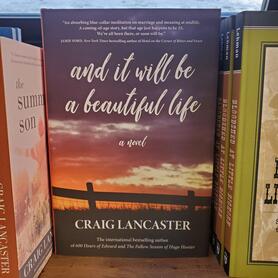 The rest Received some lovely news yesterday. And It Will Be a Beautiful Life was the bestselling book for 2021 at my local independent bookstore, This House of Books. I'm grateful to the bookstore—where I'm a proud member-owner (it's a co-op)—for being such a wonderful supporter of not just my work but of the many, many fine regional writers who are doing such important work here. And I'm grateful to the folks, near and far, who bought a copy from THoB and kept the oxygen flowing to an independent bookstore. The cultural life in my town is much the richer for its presence. If you'd like a signed copy of the book, THoB will be happy to fulfill that desire. Simply order online and mention in the comment field that you'd like it signed, and I'll hop into my trusty blue Toyota, drive downtown and sign it for you. And, hey, if it's a paperback you want, I have good news: The paperback version releases in May, and you can preorder through THoB (I'll be happy to sign those, too, once they come in), through your local independent bookseller (please!) or wherever you get books. |
About CraigCraig Lancaster is an author, an editor, a publication designer, a layabout, a largely frustrated Dallas Mavericks fan, an eater of breakfast, a dreamer of dreams, a husband, a brother, a son, an uncle. And most of all, a man who values a T-shirt. Archives
April 2024
By categoryAll 600 Hours Of Edward And It Will Be A Beautiful Life Awards Books Bookstores Community Connection Craft Craig Reads The Classics Dreaming Northward Education Edward Adrift Family Geography History Libraries Memory Montana NaNoWriMo Northward Dreams People Plays Poetry Public Policy Q&A Social Media Sports Stage Texas The Fallow Season Of Hugo Hunter The Summer Son This Is What I Want Time Travel Work Writers Writing Archives
April 2024
|
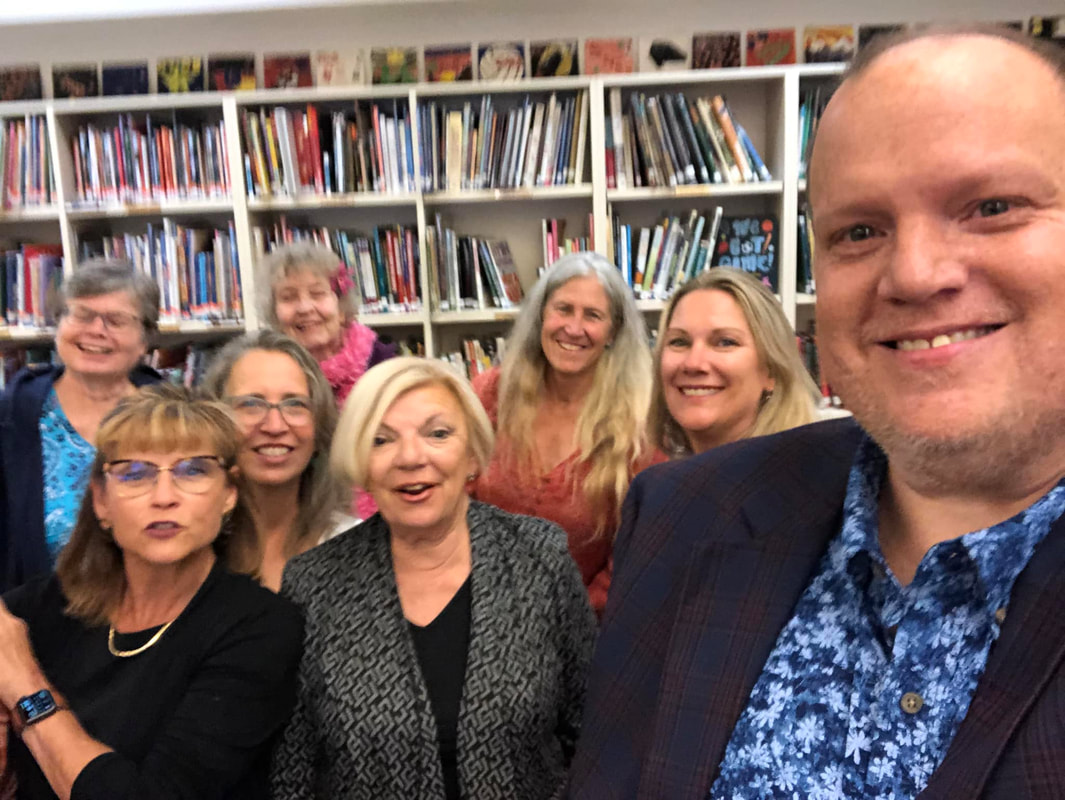
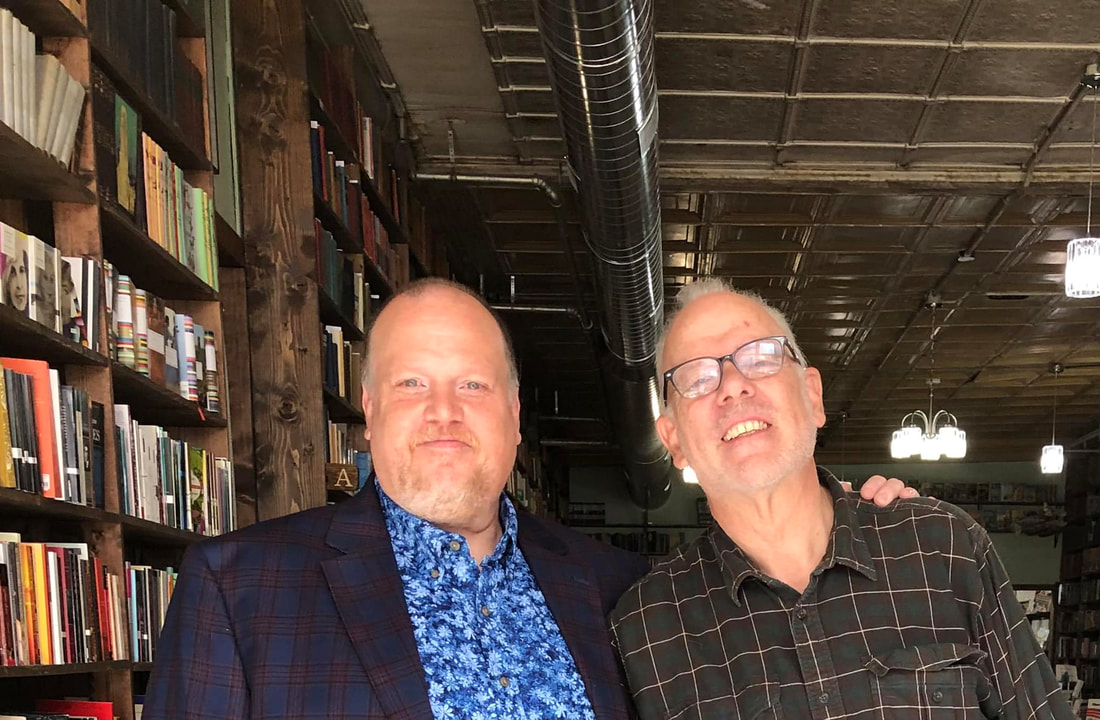
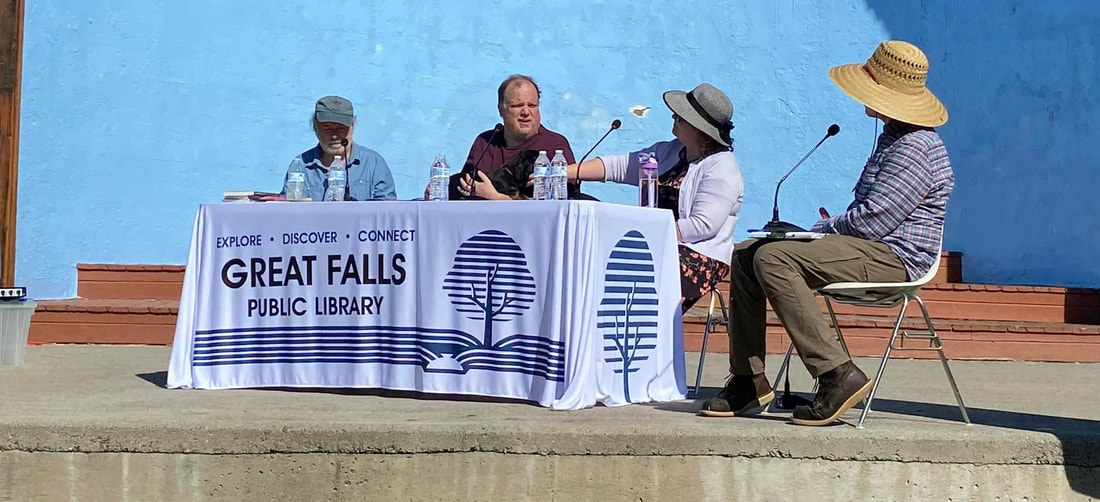
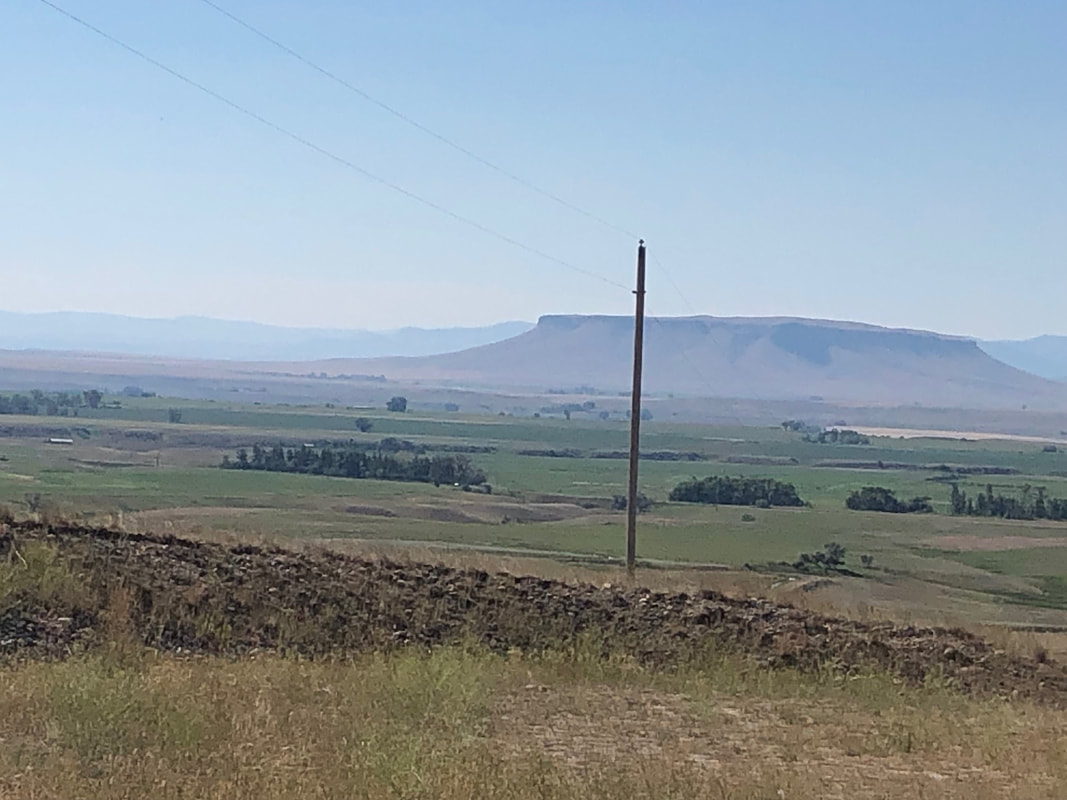
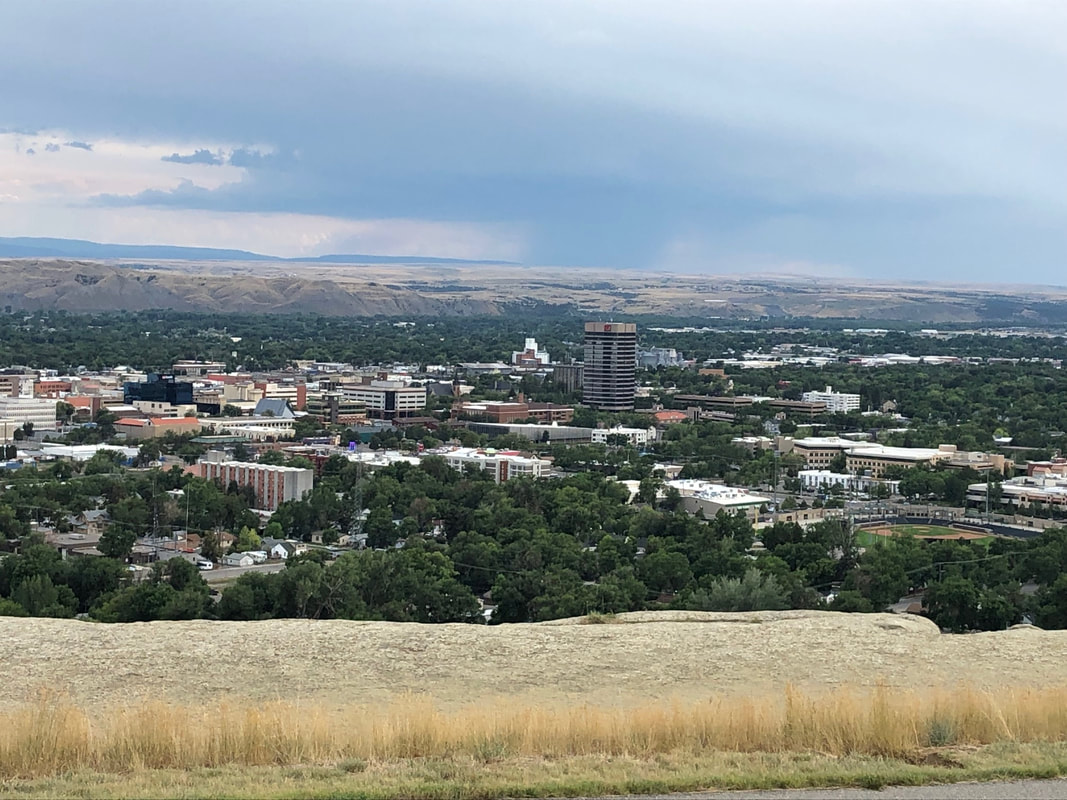
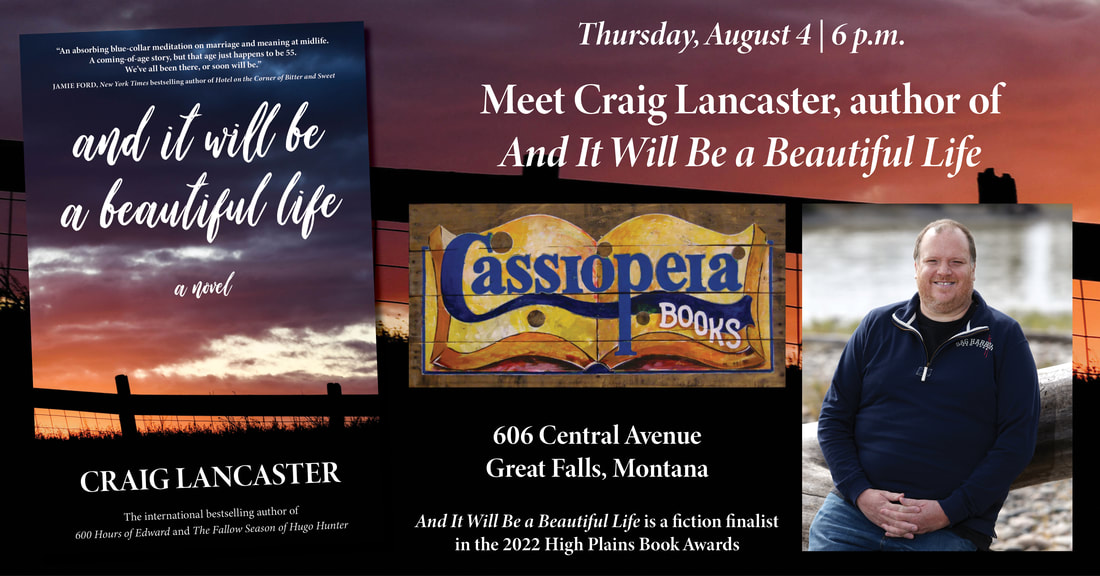
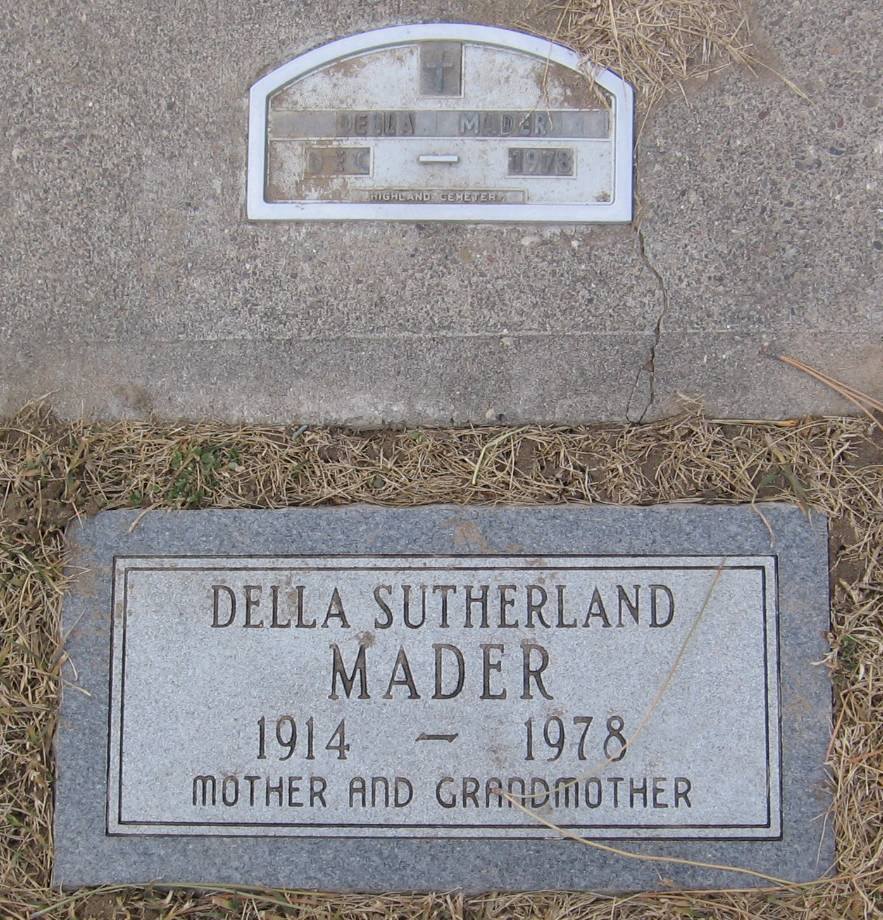
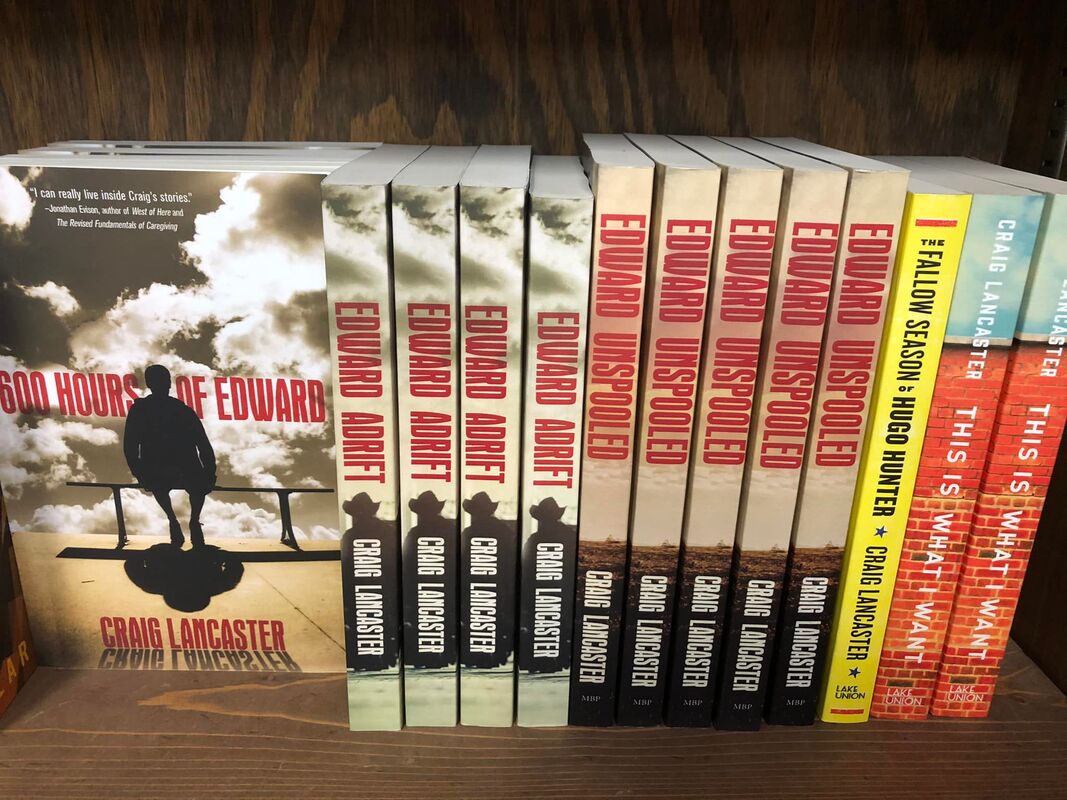
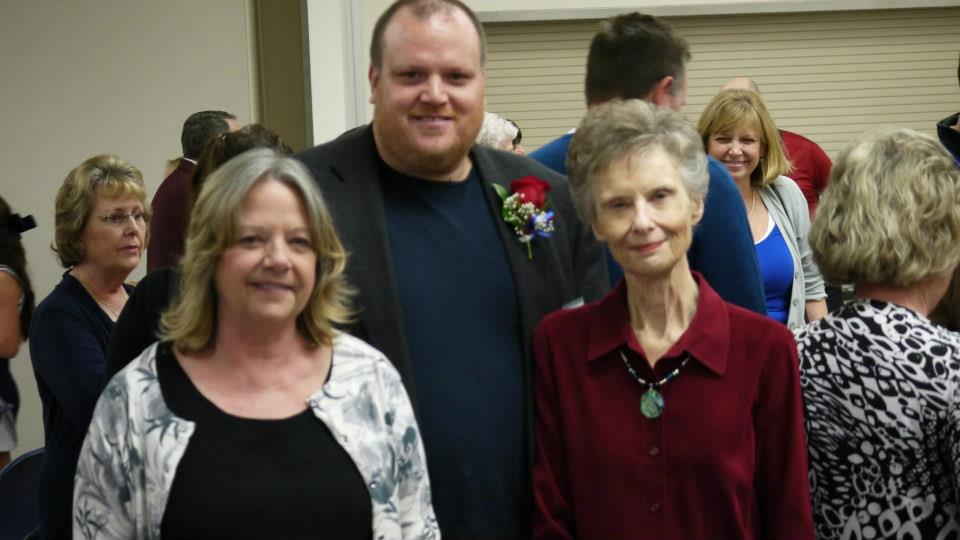
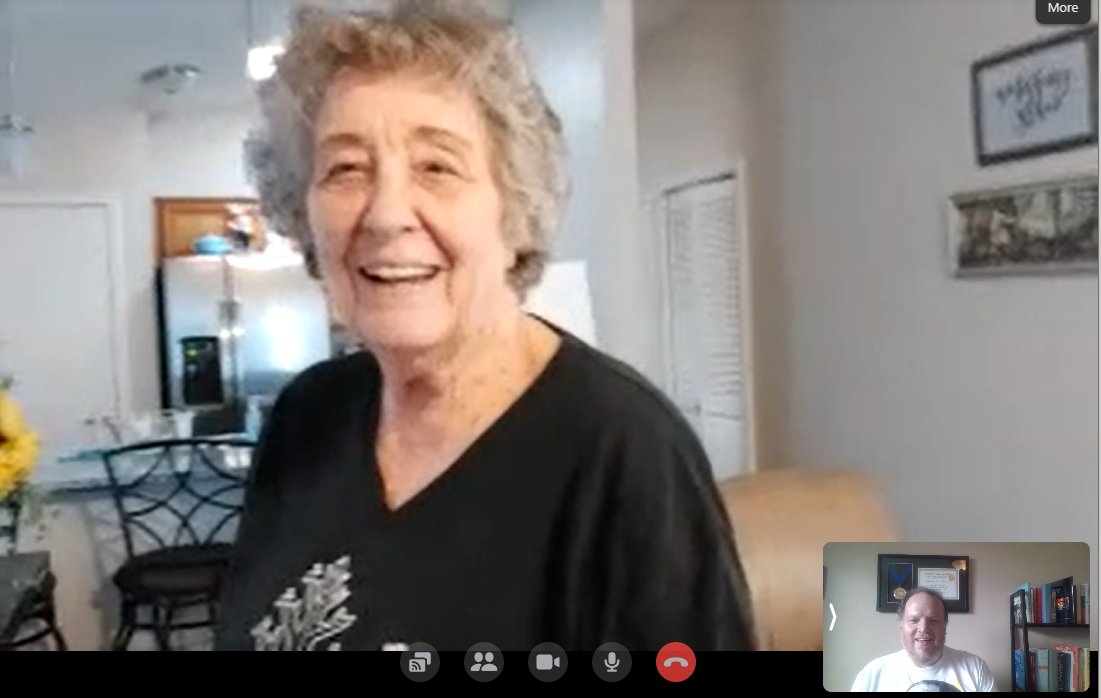
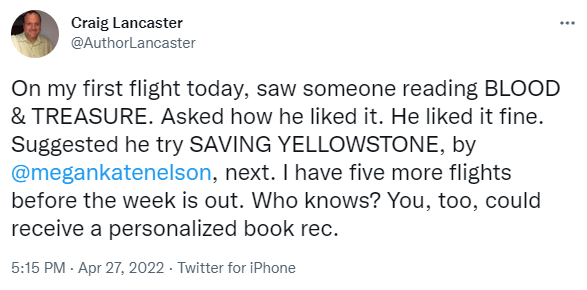
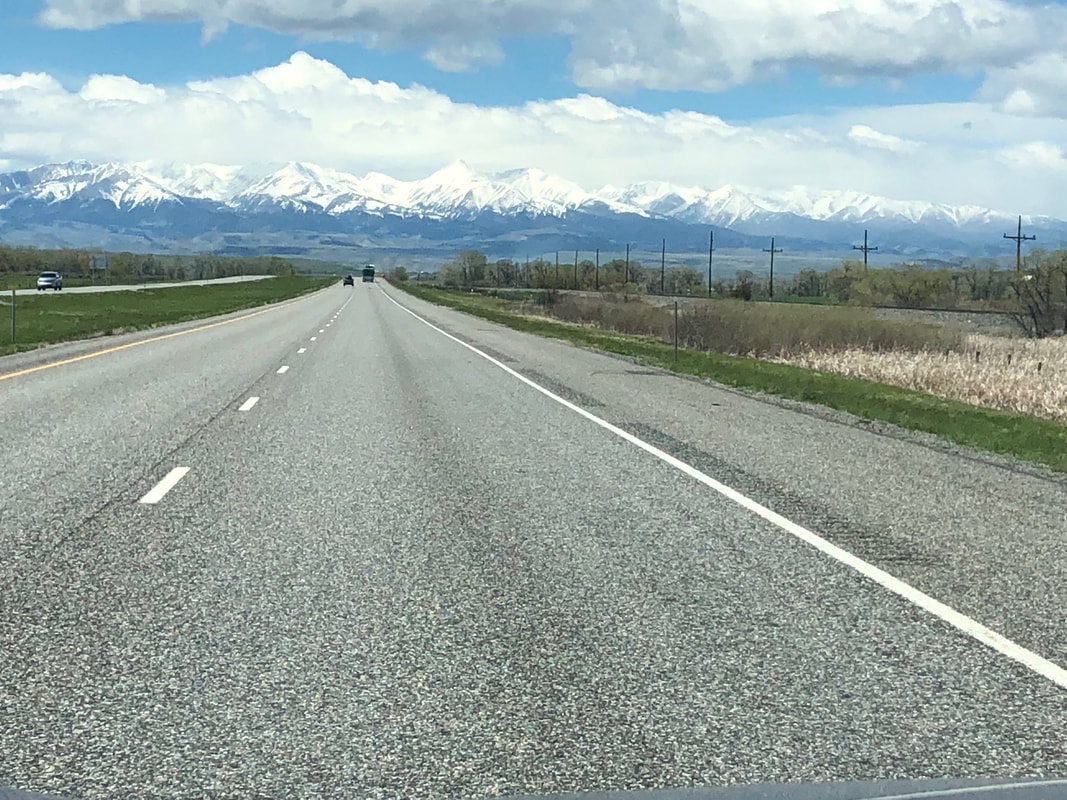
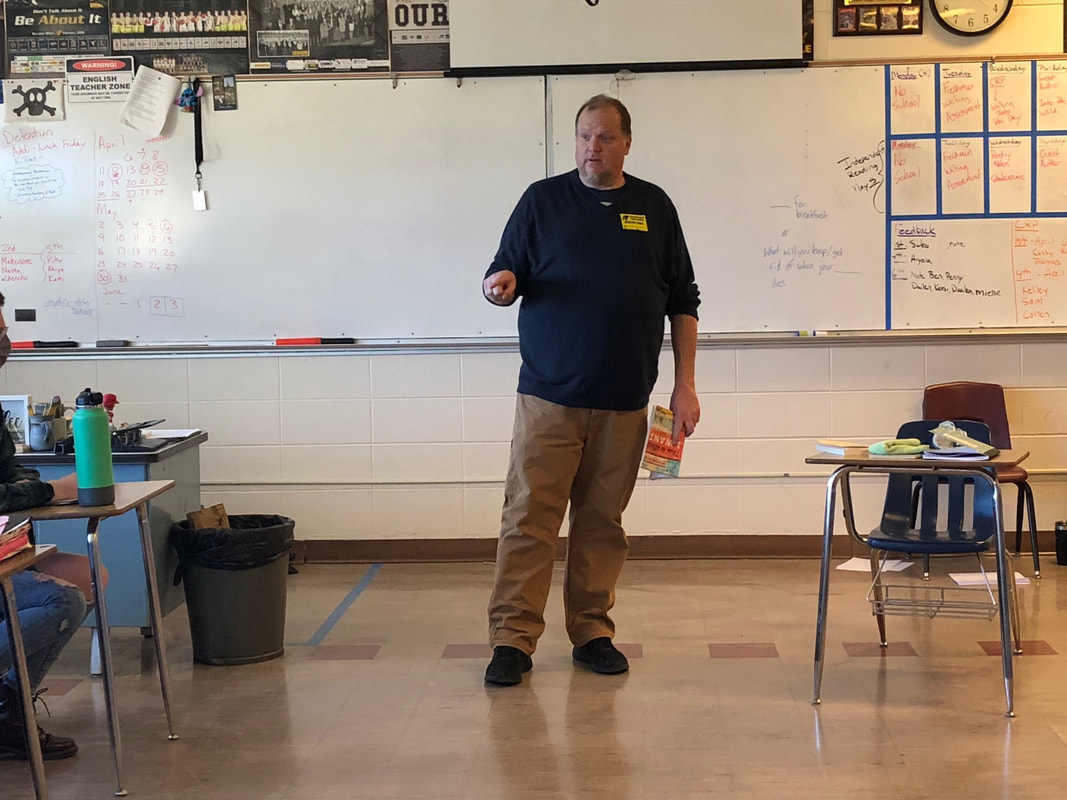
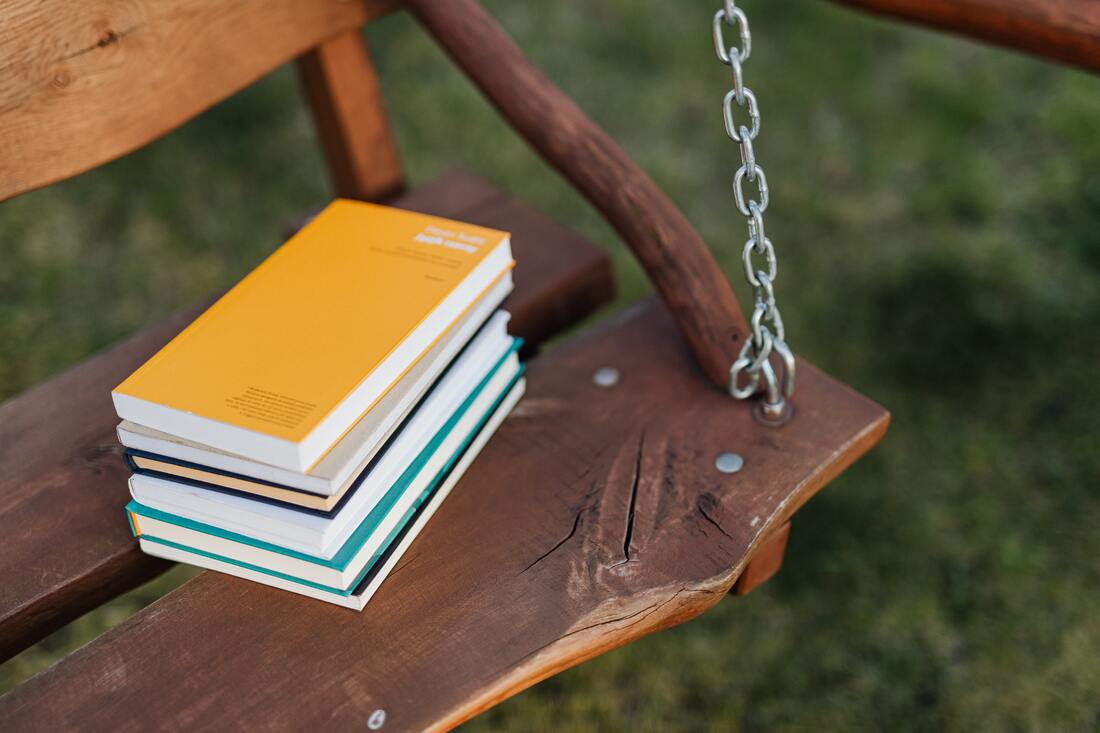
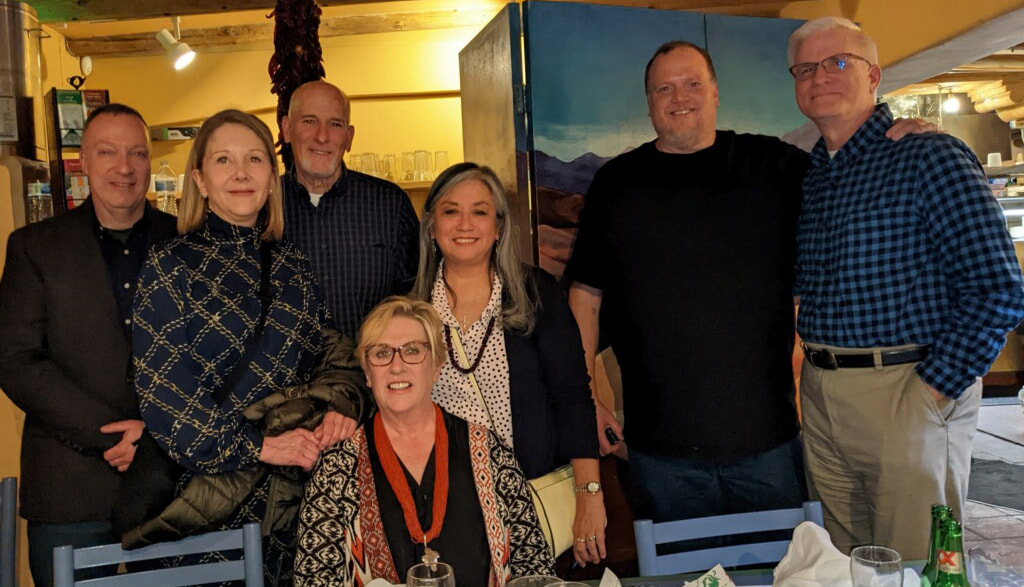
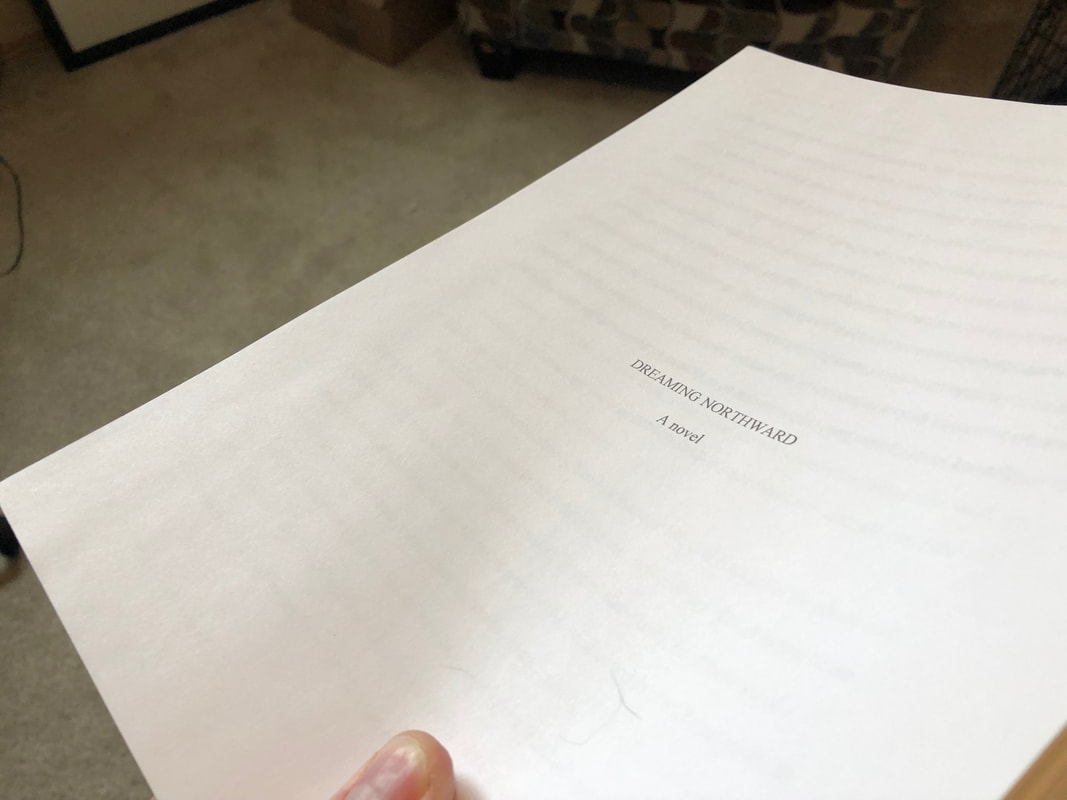
 RSS Feed
RSS Feed